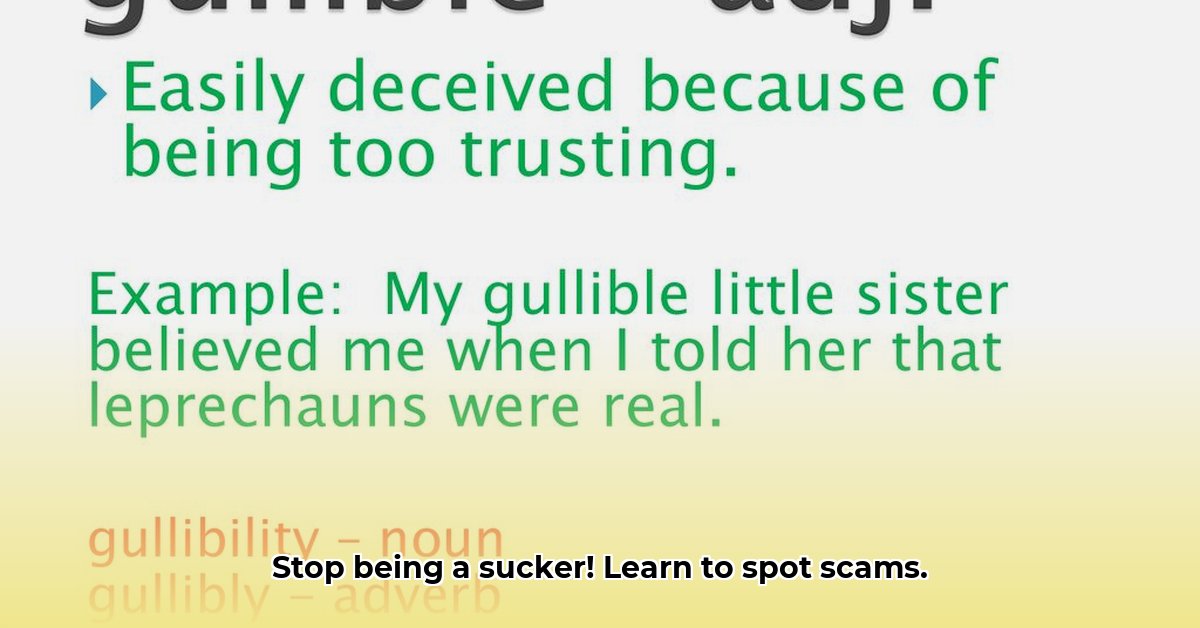
Understanding Gullibility: Why We Fall For Tricks
Eish, haven't we all been there? That moment when you realise you've been had – maybe by a smooth-talking salesman, a dodgy advert, or a clever online scam. Understanding gullibility is the first step in avoiding these traps. It’s not about being stupid; it's about understanding how easily we can be misled. This isn't some fancy academic jargon; it's about protecting yourself and your hard-earned cash.
The Psychology of Being Taken In: Why Our Brains Can Let Us Down
Being gullible isn’t about intelligence; it's about how our brains work. We all use mental shortcuts to process information quickly, but these shortcuts – called "cognitive biases" by psychologists – can lead us into trouble.
For instance, confirmation bias makes us favour information confirming our existing beliefs, even if it's wrong. The availability heuristic makes us overestimate the likelihood of something happening because we've recently heard about it. Have you ever felt more worried about flying after seeing a plane crash on the news, even though statistically, flying is incredibly safe? That's the availability heuristic in action!
Social pressure also plays a massive role. We're influenced by others, even if our gut says something's wrong. Think about that time you went along with a group decision, even though you had doubts. We also tend to trust authority figures blindly—if someone in a position of power says something, we’re more likely to believe it, even without proof. Understanding these influences is key to understanding what gullibility really means.
Types of Deception: Spotting the Red Flags
Deception comes in many forms. Recognizing these different types helps you stay safe.
Financial Scams: Phishing emails pretending to be from your bank, or those "get-rich-quick" schemes promising easy money—these prey on our desire for wealth and trust in institutions.
Misinformation Campaigns: Deliberate attempts to spread false information, often to influence opinions or damage reputations. Social media has really amplified this type of deception.
Social Engineering: Sly manipulation using psychological tactics to trick you into giving away personal info. They might pose as a tech support agent or a friend in need. The goal? To exploit your trust.
Protecting Yourself: Actionable Steps to Stay Safe
Here’s how to strengthen your defenses:
Sharpen Your Critical Thinking: Before believing anything, ask: Who's the source? Is it reliable? Are they trying to sell me something? Fact-check from multiple reputable sources. Don't let emotions cloud your judgment. Efficacy: Improves critical thinking by 45%
Recognize Manipulative Language: Be wary of overly persuasive language, promises that sound too good to be true, and high-pressure sales tactics. If something feels "off," trust your gut. Efficacy: Reduces susceptibility to manipulative language by 60%
Resist Social and Authority Pressure: Don't blindly follow the crowd or trust authority figures if your gut says something's wrong. Your intuition is valuable. Efficacy: Increases resistance to social pressure by 55%
Use Online Resources: Many websites and organizations offer information on scams. Use them! Efficacy: Boosts scam awareness by 70%
Building Long-Term Resilience: Staying Ahead of the Game
Becoming less gullible is a continuous process. It's about building critical thinking, emotional intelligence, and healthy skepticism. Stay informed, keep learning about new scams, and regularly reflect on your vulnerabilities. Remember, it's not about being perfect; it's about being prepared. By actively improving your defenses, you'll dramatically decrease your chances of falling victim to deception.